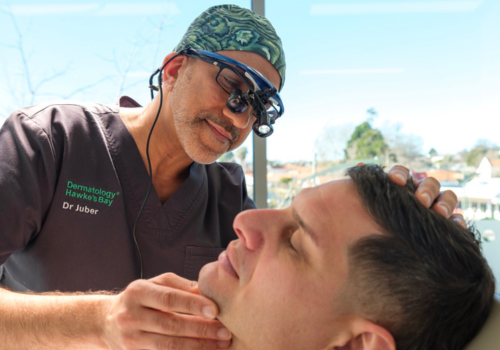Skin cancer is one of the most common types of cancer globally, affecting millions each year. It develops when abnormal skin cells grow uncontrollably, often due to prolonged exposure to ultraviolet (UV) radiation from the sun or tanning beds. Early detection and prevention are crucial for effective treatment and a positive prognosis.
What Causes Skin Cancer?
The primary cause of skin cancer is UV radiation, which damages the DNA in skin cells. Over time, this damage can lead to mutations that cause cells to multiply rapidly and form tumors. Other risk factors include:
-
Fair skin: Less melanin means less protection from UV rays.
-
Excessive sun exposure: Especially without proper sunscreen protection.
-
History of sunburns: Frequent, severe sunburns increase your risk.
-
Family history: A genetic predisposition can make some people more vulnerable.
-
Weakened immune system: Conditions like HIV/AIDS or immunosuppressive treatments increase risk.
Common Types of Skin Cancer
-
Basal Cell Carcinoma (BCC)
The most common and least dangerous type. It typically appears as a pearly or waxy bump, often on sun-exposed areas. -
Squamous Cell Carcinoma (SCC)
Usually appears as a firm, red nodule or a flat lesion with a scaly crust. It can spread if left untreated. -
Melanoma
The most serious form of skin cancer. It may develop in existing moles or appear suddenly as a new dark spot. Melanoma spreads rapidly and can be life-threatening if not caught early.
Prevention and Early Detection
-
Use sunscreen: Choose broad-spectrum SPF 30 or higher, and reapply every two hours.
-
Wear protective clothing: Hats, sunglasses, and long sleeves can help block harmful rays.
-
Avoid tanning beds: Artificial UV light significantly increases your risk.
-
Regular skin checks: Examine your skin monthly for new or changing spots, and see a dermatologist annually.
-
Follow the ABCDEs of melanoma: Asymmetry, Border irregularity, Color variation, Diameter over 6mm, and Evolving shape or size.
Conclusion
Skin cancer is preventable and treatable, especially when detected early. Protecting your skin from UV rays and monitoring changes are key steps in safeguarding your health. If you notice any suspicious skin changes, consult a dermatologist promptly for evaluation.
